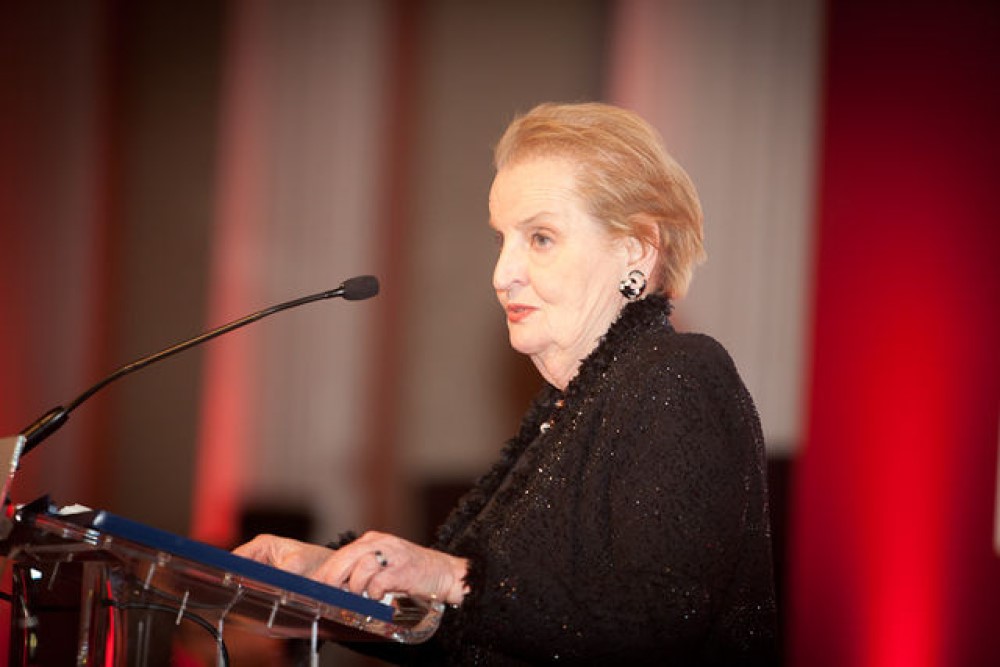
In 1997, Madeleine Albright entered American history when she became the first female to be sworn in as Secretary of State. By then, Albright – who was also the highest ranking woman in the U.S. government – had already established a reputation for being a tireless champion for freedom and democracy. Before becoming the nation's top diplomat, she spent four years serving as the U.S. Ambassador to the United Nations, where she helped direct Western foreign policy in the aftermath of the Cold War. As a child in war-torn Europe, Albright and her family emigrated to the U.S. in 1948 as refugees. Prior to her appointment as Ambassador, Albright had a diverse career, working in academia, government, and the non-profit sector. Perhaps most notable were her efforts to push President Bill Clinton to intervene in Kosovo in 1999 – which most likely prevented genocide against ethnic Muslims by former Serbian leader Slobodan Milošević. Albright also played a vital role in bringing about an end to violence in the Balkans. In 2012, she received the Presidential Medal of Freedom from President Barack Obama, who said her "toughness helped bring peace to the Balkans and paved the way for progress in some of the most unstable corners of the world."
In 1962, Albright began graduate work at the Paul H. Nitze School of Advanced International Studies (SAIS), a division of Johns Hopkins University. Despite being the mother to a pair of one year-old twins, Albright was taking a full load of five courses at Hopkins as well as studying Russian. She had already received her bachelor's from Wellesley College. Her thinking was that she might follow her father's lead and become a college professor. However, following the death of a family member, Albright had to withdraw from Hopkins after only a year. Along with her husband and children, she moved to New York, where she continued her international studies at Columbia University.
Despite leaving early, Albright has maintained a strong connection with the Hopkins community. In 1994, university leaders decided it was time she received her degree, and Albright was awarded an honorary degree, delivering keynote remarks that year as well. As if to make up for lost time, the past few years saw Albright returning to campus more frequently – such as in 2016 when she was a guest of honor at the 30th anniversary celebration for the Hopkins-Nanjing Center. Two years later, she was back on campus to talk to students about her experiences in the field of national security policy. In 2020, Albright was the featured guest in a series titled "Women in Global Health: Exploring Non-Academic Careers." The conversation focused on Albright's career and the difficulties she overcame as a woman in male-dominated fields. Describing her early days as U.S. ambassador to the U.N., she recalled having an impulse to remain silent while in the company of so many intimidating men. "Then . . . I thought, 'If I don't speak today, the voice of the United States will not be heard.' It's an act of will to speak up." Albright passed away from cancer on March 23 of this year at the age of 84.
